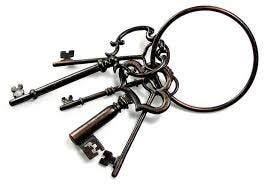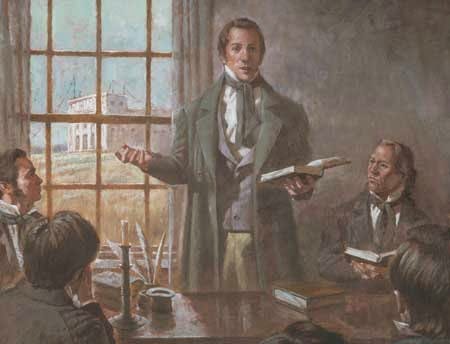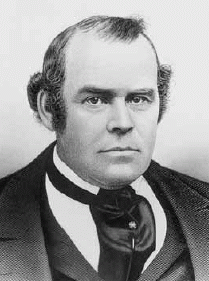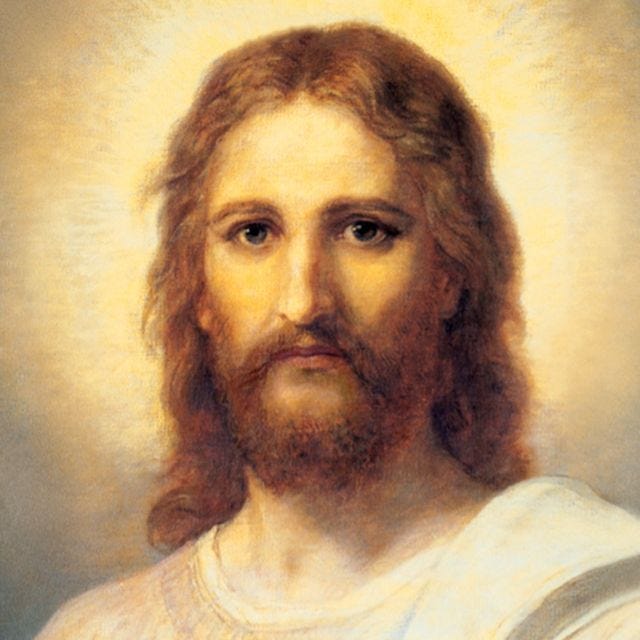The Apostle Paul of Mormonism and Hiram Page's False Revelations
Background Information on Doctrine and Covenants 28
Doctrine and Covenants 27 is a remarkable revelation about which entire volumes could be written. It points us toward a glorious future sacrament meeting and teaches us how to prepare for that meeting. It also teaches us much about the keys that the Lord has delegated unto His servants. The Lord delegated particular keys and promises for His work to several different servants, and each of these keys and promises was restored and delegated again to the Prophet Joseph Smith for the winding up scene in the last days:
Elias: the keys of bringing to pass the restoration of all things spoken by the mouth of all the holy prophets since the world began, concerning the last days
John the Baptist: the keys of the first priesthood or Aaronic Priesthood
Elijah: the keys of the power of turning the hearts of the fathers to the children, and the hearts of the children to the fathers, that the whole earth may not be smitten with a curse
Abraham, Isaac, Jacob, and Joseph, and the fathers: by whom the promises remain
Michael (Adam): the father of all, the prince of all, the ancient of days
Peter, James, and John: the keys of the Melchizedek Priesthood, the keys of the Kingdom of God, and the keys of a dispensation of the gospel for the last times and for the fulness of times
The Prophet Joseph Smith received each of these keys, but much has transpired in the two hundred years since the beginning of the Restoration, enough to cause me to wonder: where are the keys now? This is a question to keep on the shelf while we continue our study of the Doctrine and Covenants.
As I mentioned in a previous post, the background for D&C sections 27-28 includes both exciting developments and troubling issues in the progress of the Lord’s Church. As I also mentioned in the same previous post, one of the exciting developments in the Lord’s newly restored Church was the conversion of a man whom LDS scholar Terryl Givens christened The Apostle Paul of Mormonism, namely Parley Parker Pratt.
I love Parley P. Pratt’s own accounts of his experiences almost as much as I love Joseph Smith’s own accounts of his experiences. The classic LDS film How Rare a Possession contains a beautiful abridged version of Parley P. Pratt’s conversion experience, and the first volume of Saints contains a great summary too:
Hundreds of miles to the west, a farmer named Parley Pratt felt the Spirit urging him to leave his home and family to preach of the prophecies and spiritual gifts he found in the Bible. He sold his farm at a loss and trusted God would bless him for giving up everything for Christ.
With only a few items of clothing and just enough money to make the journey, he and his wife, Thankful, left their home and headed east to visit family before he set out to preach. As they traveled by canal, however, Parley turned to Thankful and asked her to go on without him. He felt the Spirit directing him to get off the boat.
“I will come soon,” he promised. “I have a work to do in this region.”6
Parley disembarked and walked ten miles into the countryside, where he came upon the home of a Baptist deacon who told him about a strange new book he had acquired. It claimed to be an ancient record, the man said, translated from gold plates with the help of angels and visions. The deacon did not have the book with him, but he promised to show it to Parley the following day.
The next morning, Parley returned to the deacon’s house. He opened the book eagerly and read its title page. He then turned to the back of the book and read the testimonies of several witnesses. The words drew him in, and he started the book from the beginning. Hours passed, but he could not stop reading. Eating and sleeping were a burden. The Spirit of the Lord was upon him, and he knew the book was true.7
Parley soon made his way to the nearby village of Palmyra, determined to meet the translator of the book. People in town pointed him to a farm a few miles down the road. As Parley walked in that direction, he saw a man and asked him where he could find Joseph Smith. The man told him that Joseph lived in Harmony, a hundred miles south, but introduced himself as Hyrum Smith, the prophet’s brother.
They talked most of the night, and Hyrum testified of the Book of Mormon, the restoration of the priesthood, and the Lord’s work in the latter days. The next morning, Parley had preaching appointments to fulfill, so Hyrum gave him a copy of the book and sent him on his way.
Parley opened the book at his next opportunity and discovered, to his joy, that the resurrected Lord had visited the people of ancient America and taught them His gospel. The message of the book, Parley realized, was worth more than all the riches of the world.
When his preaching appointments were over, Parley returned to the Smith house. Hyrum welcomed him back and invited him to visit the Whitmer farm, where he could meet a growing congregation of church members.
Eager to learn more, Parley accepted the invitation. A few days later, he was baptized.8
Listen to Parley P. Pratt’s testimony of these events in his own words:
We visited an old Baptist deacon by the name of Hamlin. After hearing of our appointment for evening, he began to tell of a book, a STRANGE BOOK, a VERY STRANGE BOOK! in his possession, which had been just published. This book, he said, purported to have been originally written on plates either of gold or brass, by a branch of the tribes of Israel; and to have been discovered and translated by a young man near Palmyra, in the State of New York, by the aid of visions, or the ministry of angels. I inquired of him how or where the book was to be obtained. He promised me the perusal of it, at his house the next day, if I would call. I felt a strange interest in the book. I preached that evening to a small audience, who appeared to be interested in the truths which I endeavored to unfold to them in a clear and lucid manner from the Scriptures. Next morning I called at his house, where, for the first time, my eyes beheld the "BOOK OF MORMON"—that book of books—that record which reveals the antiquities of the "New World" back to the remotest ages, and which unfolds the destiny of its people and the world for all time to come;—that Book which contains the fulness of the gospel of a crucified and risen Redeemer;—that Book which reveals a lost remnant of Joseph, and which was the principal means, in the hands of God, of directing the entire course of my future life.
I opened it with eagerness, and read its title page. I then read the testimony of several witnesses in relation to the manner of its being found and translated. After this I commenced its contents by course. I read all day; eating was a burden, I had no desire for food; sleep was a burden when the night came, for I preferred reading to sleep.
For the life of me I cannot understand why more people - members of the Church or otherwise - don’t approach the Book of Mormon with the same enthusiasm, curiosity, eagerness, and thirst for truth as Parley P. Pratt did when he first heard of it. Too many people treat the Book of Mormon lightly, as if it were merely an interesting cultural relic or imaginative historical fiction. Such frivolous responses to the Book of Mormon remind me of the way in which C.S. Lewis described foolish approaches to the Savior Himself:
I am trying here to prevent anyone saying the really foolish thing that people often say about Him: I’m ready to accept Jesus as a great moral teacher, but I don’t accept his claim to be God. That is the one thing we must not say. A man who was merely a man and said the sort of things Jesus said would not be a great moral teacher. He would either be a lunatic — on the level with the man who says he is a poached egg — or else he would be the Devil of Hell. You must make your choice. Either this man was, and is, the Son of God, or else a madman or something worse. You can shut him up for a fool, you can spit at him and kill him as a demon or you can fall at his feet and call him Lord and God, but let us not come with any patronizing nonsense about his being a great human teacher. He has not left that open to us. He did not intend to.
Parley P. Pratt did not think of Jesus as merely a great moral teacher or a great human teacher, and when he studied the Book of Mormon with an honest heart and real intent to know and follow the truth, he knew that it was different from any other book. He read all day and into the night, rejecting food and sleep as distractions. I love Parley P. Pratt’s testimony of the Book of Mormon because it perfectly describes, as much as it is possible to articulate in human language, my own experience with the Book of Mormon:
As I read, the spirit of the Lord was upon me, and I knew and comprehended that the book was true, as plainly and manifestly as a man comprehends and knows that he exists. My joy was now full, as it were, and I rejoiced sufficiently to more than pay me for all the sorrows, sacrifices and toils of my life. I soon determined to see the young man who had been the instrument of its discovery and translation.
As I also mentioned in a previous post, one of the troubling issues during the time period of the revelations contained in sections 27-28 was the deception that entered the Church through one of the Eight Book of Mormon witnesses: Hiram Page. Hiram Page had a certain stone and professed to receive revelations through the stone for the establishment of Zion and the order of the Church. As Bruce R. McConkie indicates in his section heading for D&C 28, several members of the Church, including Oliver Cowdery, had been deceived by Page’s claims. The Prophet Joseph Smith was thus compelled to inquire of the Lord concerning the matter, and received the revelation that is now D&C 28 as a result of his inquiry.
Prior to this event, Oliver Cowdery sent a passionate letter to the Prophet Joseph Smith in which he wrote: “I command you in the name of God to erase those words, that no priestcraft be amongst us.”1 Cowdery disapproved of a phrase in the list of requirements for baptism: “And truly manifest by their works that they have received of the Spirit of Christ unto the remission of their sins.”2
Because he had written “The Articles of the Church of Christ,” and perhaps because of his personal interpretation of the relationship between grace and works, Oliver thought that he was entitled to correct the revelation and to reprove the Prophet. Joseph Smith, on the other hand, insisted that the requirements for baptism were delivered to him by revelation, and he asked Oliver Cowdery by what authority is pretended to command him “to alter, or erase, to add or diminish to or from a revelation or commandment from Almighty God.”3
Also in the Revelations in Context chapter “All Things Must Be Done in Order,” we learn more about the Prophet Joseph Smith’s response to this conflict:
A few days later, Joseph began a journey from his home in Harmony, Pennsylvania, to see Oliver at the Whitmer home in Fayette, New York. Joseph’s history records, “I found the [Whitmer] family in general [favor] of his [Oliver’s] opinion … and it was not without both labor and perseverance that I could prevail with any of them to reason calmly on the subject.” In the end, “I succeeded of bringing not only the Whitmer family, but also Oliver Cowdery also to acknowledge that they had been in error.”4
With the benefit of several years’ experience, Joseph later reflected on the incident, writing, “And thus was this error rooted out, which having its rise in presumption and rash judgement, was the more particularly calculated (when once fairly understood) to teach each and all of us the necessity of humility, and meekness before the Lord, that he might teach us of his ways; that we might walk in his paths, and live by every word which proceedeth forth from his mouth.”5
In my opinion, this event represents an important development in Church History that is even more instructive to us today than it was in Joseph Smith’s time. It seems to me that too often members of the Church (and others) approach the scriptures in the manner of Oliver Cowdery, seeking to alter or wrest the true meaning of verses or a passages of scripture by imposing their own presentist bias or passionately held opinions upon them. Another common and related error in is that of “proof texting.” It is easy to fall into the traps of proof-texting or wresting the scriptures because of a presentist bias because, although the scriptures are usually simple and straightforward (or “plain” in Nephi’s language), sometimes it takes a lot of work and effort to understand the original intent of the authors of scripture by the same Spirit in which they wrote. (However, we can also err in the opposite direction by refusing to grant the common sense interpretation of verses or passages of scripture based on philosophic preferences, such as the erroneous claim that Hebrew thought is simply superior to Greek thought)
Despite the resolution of Oliver Cowdery’s concern, challenges to Joseph Smith’s prophetic authority continued to arise:
The lesson, however, does not seem to have been so easily learned. Within months, Joseph again needed to assert his authority as the mouthpiece of revelation. Persecution around his home in Harmony, Pennsylvania, had forced Joseph and his wife, Emma, to take up residence with the Whitmers in August 1830. Upon arriving, Joseph found that Hiram Page, the husband of one of the Whitmers’ daughters, had used a stone to receive two revelations concerning the Church.6
Perhaps remembering his success persuading Oliver Cowdery and the Whitmers of their error concerning the “Articles and Covenants,” Joseph intended to reason with them until a conference that was to be convened in September. He soon discovered, however, that belief in Hiram Page’s supposed revelations was more widespread than he had thought, so he sought a revelation on the matter.7
The revelation was addressed to Oliver Cowdery. Oliver was assured his voice would be heard but was warned that “no one shall be appointed to Receive commandments & Revelations in this Church excepting my Servent Joseph for he Receiveth them even as Moses & thou shalt be obedient unto the things which I shall give unto him.”8
Lyndon W. Cook sheds more light on this issue in his book The Revelations of the Prophet Joseph Smith:
Historical Note. No longer enjoying the protection of Isaac Hale, and concerned about their personal safety, the Prophet and his family determined to leave Harmony, Pennsylvania permanently. Having learned of the persecution against Joseph Smith in Harmony, Peter Whitmer, Sr., invited the Prophet and Emma to come and live with his family in Fayette. About the last of August 1830 Newel Knight took his team and wagon to Harmony to move Joseph, Emma, and their family to Fayette. They arrived about 1 September 1830.
Shortly after arriving in Fayette, the Prophet became greatly distressed over Hiram Page’s claim to certain revelations, which he allegedly had received by means of a seerstone. Newel Knight described the incident in his journal:
“[Page] had managed to get up some discussions of feeling among the brethren by giving revelations concerning the government of the Church and other matters, which he claimed to have received through the medium of a stone he possessed…. Even Oliver Cowdery and the Whitmer family had given heed to them…. Joseph was perplexed and scarcely knew how to meet this new exigency. That night I occupied the same room that he did and the greater part of the night was spent in prayer and supplication. After much labor with these brethren they were convinced of their error, and confessed the same, renouncing [Page’s] revelations as not being of God.”
Section 28, received prior to the second conference of the Church (26 September 1830), came in response to the Hiram Page difficulty. Among other matters, this revelation called Oliver Cowdery to take a mission to the American Indians, and clearly implied that the New Jerusalem would be located “on the borders by the Lamanites” (i.e., Missouri) (pp. 39-40)
Who was Hyrum Page? Lyndon W. Cook’s biographical note on Hyrum Page in The Revelations of the Prophet Joseph Smith is helpful (see also here):
Born in Vermont 1800. Studied medicine at a young age. Traveled considerably in state of New York and Canada as physician. Located in Seneca county, New York; there became acquainted with Whitmer family. Married Catherine Whitmer 10 November 1825. Nine Children: John, Elizabeth, Philander, Mary, Peter, Nancy, Hiram, Oliver, and Kate. One of Eight Witnesses to Book of Mormon 1829. Baptized 11 April 1830 by Oliver Cowdery. Ordained teacher by 9 June 1830. Received false revelations through use of seerstone in fall of 1830, deceiving many of Whitmer family. Moved to Kirtland, Ohio, 1831. On 3 June 1831 listed as teacher. Later ordained high priest, probably in Missouri. Moved to Jackson County, Missouri, 1832. With others attempted to settle difficulties between Mormon and non-Mormons in Jackson County, Missouri, 1833. Moved with family to Clay County, Missouri; resided there until 1836. Located in Far West, Missouri; there owned 120 acres. Severed connection with Church in 1838 when members of Whitmer family were excommunicated. Settled in Ray County, Missouri, after leaving Church. Located on farm near Excelsior Springs. Died 12 August 1852 near Excelsior Springs, Ray County, Missouri. (p. 40)
The stories of Oliver Cowdery’s challenges to Joseph Smith’s authority and Hiram Pages’s attempts to imitate Joseph Smith’s authority also reveal that the early Saints were still growing into the principle of revelation. As the authors of the LDS Come Follow Me manual put it, “revelation was still a relatively new concept for the Saints as the Restoration continued to unfold,” and there is an order to revelation. Only the prophet receives revelation for the entire Church, but the Lord encourages each one of us to receive personal revelation for our own lives and for our own part in His work.
This is how the authors of Saints, Volume 1 describe the same events that led up to the revelation of D&C 28:
Later that summer, Joseph and Emma paid off their farm with the help of friends and moved to Fayette so Joseph could devote more time to the church.16 After they arrived, however, they learned that Hiram Page, one of the Eight Witnesses and a teacher in the Aaronic Priesthood, had started to seek revelations for the church through what he thought was a seer stone.17 Many Saints, including Oliver and some members of the Whitmer family, believed these revelations were from God.18
Joseph knew he was facing a crisis. Hiram’s revelations mimicked the language of scripture. They spoke of the establishment of Zion and the organization of the church, but at times they contradicted the New Testament and truths the Lord had revealed through Joseph.
Unsure of what to do, Joseph stayed up praying one night, pleading for guidance. He had experienced opposition before, but not from his friends. If he acted too forcefully against Hiram’s revelations, he could offend those who believed in them or discourage faithful Saints from seeking revelation on their own.19 But if he did not condemn the false revelations, they could undermine the authority of the Lord’s word and divide the Saints.
After many sleepless hours, Joseph received a revelation directed to Oliver. “No one shall be appointed to receive commandments and revelations in this church excepting my servant Joseph Smith,” the Lord declared, “for all things must be done in order, and by common consent in the church.” The Lord directed Oliver to teach this principle to Hiram.
The revelation then called Oliver to go nearly a thousand miles to the western edge of the United States to preach the restored gospel to American Indians, who were remnants of the house of Israel. The Lord said that the city of Zion would be built near these people, echoing the Book of Mormon’s promise that God would establish the New Jerusalem on the American continent prior to the Second Coming of Christ. He did not identify the city’s exact location, but He promised to reveal that information at a later time.20
A few days later, at a conference of the church, the Saints renounced Hiram’s revelations and unanimously sustained Joseph as the only one who could receive revelation for the church.21
Before delving into D&C 28, however, I would like to know what Hiram Page’s supposed revelations were. What did he write? Why? Why were Hiram’s false revelations so convincing to his peers? Are not Hiram Page’s false revelations a further witness of the truth of the Book of Mormon and of Joseph Smith’s prophetic calling?












